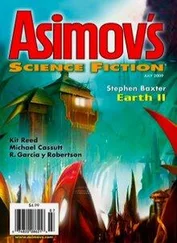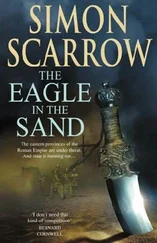Gillian Bradshaw - The Sand-Reckoner
Здесь есть возможность читать онлайн «Gillian Bradshaw - The Sand-Reckoner» весь текст электронной книги совершенно бесплатно (целиком полную версию без сокращений). В некоторых случаях можно слушать аудио, скачать через торрент в формате fb2 и присутствует краткое содержание. Жанр: Исторические приключения, на английском языке. Описание произведения, (предисловие) а так же отзывы посетителей доступны на портале библиотеки ЛибКат.
- Название:The Sand-Reckoner
- Автор:
- Жанр:
- Год:неизвестен
- ISBN:нет данных
- Рейтинг книги:3 / 5. Голосов: 1
-
Избранное:Добавить в избранное
- Отзывы:
-
Ваша оценка:
- 60
- 1
- 2
- 3
- 4
- 5
The Sand-Reckoner: краткое содержание, описание и аннотация
Предлагаем к чтению аннотацию, описание, краткое содержание или предисловие (зависит от того, что написал сам автор книги «The Sand-Reckoner»). Если вы не нашли необходимую информацию о книге — напишите в комментариях, мы постараемся отыскать её.
The Sand-Reckoner — читать онлайн бесплатно полную книгу (весь текст) целиком
Ниже представлен текст книги, разбитый по страницам. Система сохранения места последней прочитанной страницы, позволяет с удобством читать онлайн бесплатно книгу «The Sand-Reckoner», без необходимости каждый раз заново искать на чём Вы остановились. Поставьте закладку, и сможете в любой момент перейти на страницу, на которой закончили чтение.
Интервал:
Закладка:
Marcus stopped himself and turned his attention back to the chest, jerking at a knot to ease the sudden apprehension that tightened his throat. Practical matters like the war. For three years he and Archimedes had been away from Syracuse, and for two of those years he had been urging his master to go home. Now they were in the harbor, and he wished that they were anywhere else. Syracuse was at war with the Republic of Rome, and Marcus saw no way that the future could hold for him anything but grief.
There was not much sign of the war at the docks, except that everything was quieter than usual. Destruction was still remote, a matter of armies maneuvering far away, a ruinous storm whose approach could be watched, with dread, from a distance. In a concession to its threat, however, the customs official usual to peacetime had been joined at the quayside by two soldiers. The pattern of crimson letter sigmas on the round shields slung over their left shoulders declared them to be Syracusan, but Archimedes recognized neither of them. Syracuse was a big enough city that he couldn't know more than a fraction of his fellow citizens, but he still watched the men apprehensively. They might be foreign mercenaries, and mercenaries, as every citizen knew, had to be handled more cautiously than live scorpions. Under the previous government they would have given a beating to any citizen whose expression offended them. Things were much better under the present ruler, but only a fool would assume that the breed's basic character had altered. At least these men appeared to be Greeks rather than any unpredictable type of barbarian: the body armor they both wore was of the standard Greek type- a cuirass made from layers of linen glued together to form a stiff carapace with a fringe of plates about the hips- and the helmets pushed back on their heads were of the popular Attic Greek design, with hinged cheekpieces and no noseguard. It was impossible to tell more about their origin from their speech, however, for they said nothing, merely stood leaning on their spears, watching with bored expressions while the elderly customs official went about his business.
The customs official spoke first to the ship's captain, while the dozen passengers waited in a knot beside the gangplank. "You've come from Alexandria?" the official asked, and there was no doubt about his origin: he spoke in the broad Doric dialect of the city. Archimedes found himself smiling at the sound. The one thing he'd disliked about Alexandria was the way everyone had made fun of the way he talked. There were, after all, some good things about being home- and the best of them would be to see his family again. He wrapped his arms around himself in an effort to contain his impatience. He hadn't been able to tell his family what ship he would sail on or when it might arrive, and he was eager to surprise them.
The captain agreed that yes, the ship had come from Alexandria by way of Cyrene, and that the cargo was linen and glass and some spices. He produced the bill of lading, and the customs official began to go over it. Archimedes' attention wandered. A dead fish was floating in the water beside the ship. It lay on its side, its tail slightly raised. Live fish swam belly-down: why did dead ones always float on their sides? He imagined a piece of wood of approximately the same length and breadth as the fish. It would float on its side, too. What about a wider piece of wood, a box-shaped one? Would it float with one of its flat sides down, or with a long edge down?
The customs official had started to gossip with the captain. There was obviously going to be a long wait before the joyful reunion. Archimedes rubbed the dirty stone of the quay with a sandal, then squatted and pulled the set of compasses out of his belt. It was lucky he'd forgotten to give them to Marcus to be packed.
He was deep in the equilibrium of cuboids when a hand tapped him on the shoulder and a voice demanded, "Well?" He looked up from his sketches and realized that the customs official was talking to him. The two soldiers were staring and grinning and the sun was noticeably lower. Marcus was sitting patiently on the luggage chest at the foot of the gangplank, but all the other passengers had gone.
Archimedes sprang to his feet, his face hot with embarrassment. "What did you say?" he asked, still struggling to force floating cuboids from his mind.
"I asked you your name!" repeated the customs official in annoyance.
"Sorry. Archimedes, son of Phidias. I'm a citizen of Syracuse." He waved vaguely at Marcus. "That's my slave and my things."
The official softened at the discovery that he was dealing with a fellow citizen. Archimedes: an unusual name, particularly in a city where half the male population was named Hieron, Gelon, or Dionysios, after great leaders of the past. The name Phidias was vaguely familiar, though, linked with a couple of stories the official had heard of intellectual eccentricity. "Your father's the astronomer, isn't he?" he asked. "I've heard of him." He glanced at the geometrical figures scratched over the quay and snorted. "Got a son of his own breed, it seems. What were you doing in Alexandria?"
"Studying," said Archimedes, and swallowed a knot of irritation. It was no insult to be told that he was a true son of his father. "Studying mathematics."
One of the soldiers nudged the other and whispered something; the second man laughed. But the official ignored them. "You've come home because of the war?" he said approvingly, and when Archimedes nodded, he went on, still more approvingly, "That's the brave young fellow, to come back to fight for your city!"
Archimedes gave him a false smile. He was loyal to his city, as any man ought to be, but he had no intention of enlisting in the army if he could possibly avoid it. He was certain that he'd be far more use to Syracuse building war machines- and besides, he'd had the usual military training at school, and had comprehensively detested it. Drilling and hurling the javelin, wrestling and races in armor: exhaustion and blistered hands; humiliation by glamorous champions on the field and even more humiliating sexual advances in the bathhouse afterward. When his year with the state-issue javelin was finally over, he'd chopped the miserable weapon into sections and used the bits to make a surveying instrument. He had no plans to buy a new spear now. But he knew better than to disagree with a customs official.
The customs official smiled back obliviously and walked over to inspect Marcus and the luggage. "The slave's your own man?" he asked, calling the question over his shoulder. Marcus politely slid off the chest.
"Yes," Archimedes called back, relaxing. "My father bought him here in the city, years ago, and gave him to me when I left for Alexandria."
"There's no duty to pay on him, then. And the goods are your own, for your private use? Nothing you plan to sell?" The official looked them over with a practiced eye: a large, coffin-shaped chest of wood and leather, very battered, and a new wicker basket lashed to it with rope. The chest had undoubtedly carried all the owner's luggage out to Egypt, and the basket had been purchased for the inevitable surplus which had been discovered when it was time to come back. "What's in the basket?"
"A, um, machine," Archimedes said awkwardly.
The official glanced at him with a lift of the eybrows, and for the first time the two soldiers showed some interest. "Machine" in those days meant, first and foremost, "war machine."
"What sort of machine?" asked the official.
"It's for lifting water," said Archimedes, and the soldiers lost interest.
The nudger whispered again, and this time Archimedes overheard his comment: "What non-mathematicians would call a bucket!" His face went hot.
"You planning to sell it?"
"Well, um, not that one. That one's the prototype. It's just a model. I brought it back so I could show people how it works. If somebody wants one, I'll build a bigger one." He spread his arms in a vague indication of the real machine's unbucketlike size.
Читать дальшеИнтервал:
Закладка:
Похожие книги на «The Sand-Reckoner»
Представляем Вашему вниманию похожие книги на «The Sand-Reckoner» списком для выбора. Мы отобрали схожую по названию и смыслу литературу в надежде предоставить читателям больше вариантов отыскать новые, интересные, ещё непрочитанные произведения.
Обсуждение, отзывы о книге «The Sand-Reckoner» и просто собственные мнения читателей. Оставьте ваши комментарии, напишите, что Вы думаете о произведении, его смысле или главных героях. Укажите что конкретно понравилось, а что нет, и почему Вы так считаете.












